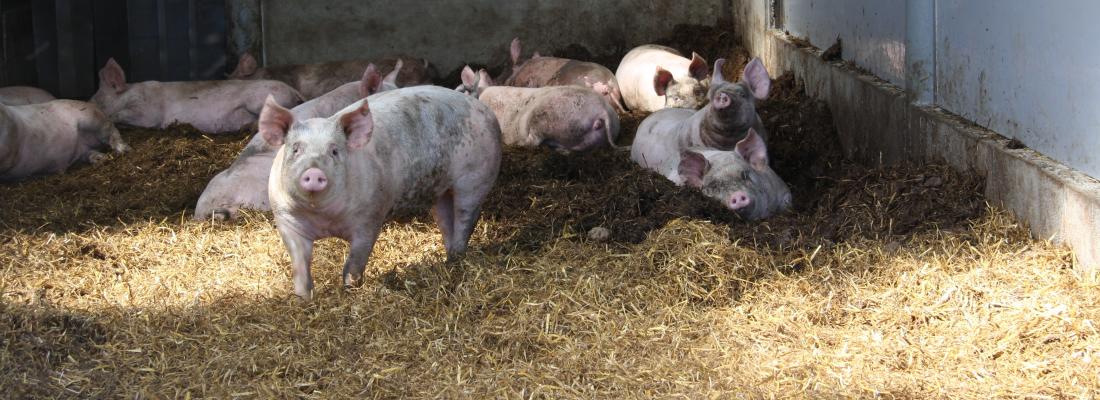Reading time 6 min
Improving maternal welfare during gestation has positive outcomes on neonatal survival
Published on 25 October 2022

Improving the housing of pregnant sows by giving them more space and access to deep straw had positive effects on their welfare, influenced their maternal behavior and improved the survival of their offspring. The present study aimed at determining whether these effects were actually due to environmental enrichment and whether the provision of straw pellets and wood can partly mimic the effects of straw bedding during gestation.
Three graded levels of enrichment were used, that were, collective conventional pens on slatted floor (C, n = 26), the same pens with manipulable wood materials and distribution of straw pellets after the meals (CE, n = 30), and larger pens on deep straw litter (E, n = 27). Sows were then housed in identical farrowing crates from 105 days of gestation until weaning.
Decreased stereotypies, blood neutrophils, and salivary cortisol, and increased behavioral investigation indicated that health and welfare of sows during gestation were improved in the E environment compared with the C environment. The CE sows responded as C or E sows depending on the trait.
Piglet mortality rate in the first 12 h after birth was lower in E and CE litters than in C litters, but enrichment level during gestation had only small effects on lactating sow behavior and milk composition postpartum. On days 2 and 3 of lactation, E sows interrupted less often their nursing sequences than C and CE sows. On day 2, milk from both E and CE sows contained more minerals than that from C sows. In one-day-old piglets, the expression levels of genes encoding toll-like receptors (TLR2, TLR4) and cytokines (interleukin-1, -6 and -10) in whole blood after 20-h culture, were greater in E piglets than in CE or C piglets.
In conclusion, housing sows in an enriched environment during gestation improved early neonatal survival, probably via moderate and cumulative positive effects on sow behavior, milk composition, and offspring innate immune response. The gradation in the effects observed in C, CE and E housing environment reinforced the hypothesis of a causal relationship between maternal environmental enrichment, sow welfare and postnatal piglet traits.
Merlot, E.; Meunier-Salaun, M.C.; Peuteman, B.; Pere, M.C.; Louveau, I.; Perruchot, M.H.; Prunier, A.; Gardan-Salmon, D.; Gondret, F.; Quesnel, H., 2022. Improving maternal welfare during gestation has positive outcomes on neonatal survival and modulates offspring immune response in pigs. Physiology & Behavior, 249: 13.
http://dx.doi.org/10.1016/j.physbeh.2022.113751
